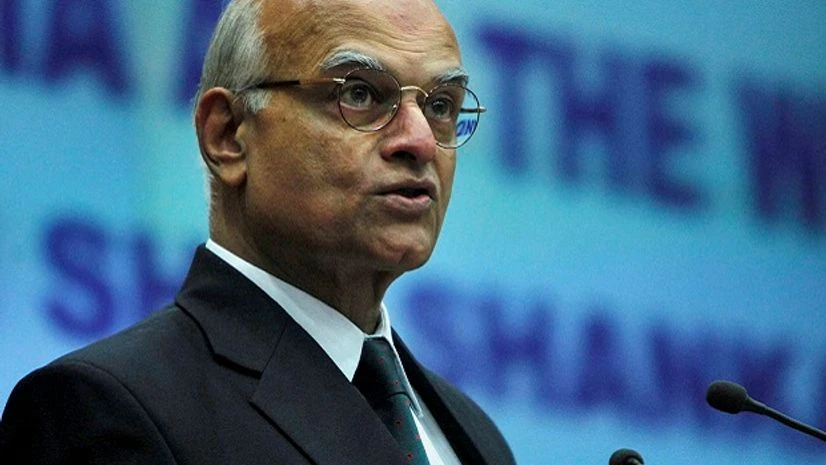Shivshankar Menon, former Foreign Secretary and National Security Advisor to then Prime Minister Dr. Manmohan Singh has come out with a book, Choices - The Making of India’s Foreign Policy. In a chapter, ‘Restraint or Riposte’, Menon, who was the Foreign Secretary in November 2008, explains the rationale behind not attacking either LeT headquarters or terrorist training camps in PoK or ISI itself, after Mumbai was attacked by Pakistani terrorists on 26 November, 2008.
The attack claimed 166 lives and injured 308.
The attack claimed 166 lives and injured 308.
“I pressed for immediate military response”
In the book, Menon writes:
“I myself pressed at that time for immediate visible retaliation of some sort, either against the LeT in Muridke, in Pakistan’s Punjab province, or their camps in Pakistan-occupied Kashmir, or against the ISI, which was clearly complicit. To have done so would have been emotionally satisfying and gone some way toward erasing the shame of the incompetence that India’s police and security agencies displayed in the glare of the world’s television lights for three full days.”
The former NSA, who was the foreign secretary at the time writes that he urged Prime Minister Dr. Manmohan Singh and external affairs minister, Pranab Mukherjee, that, “we should retaliate and be seen to retaliate, to deter further attacks, for reasons of international credibility and to assuage public sentiment.”
More From This Section
External affairs minister Pranab Mukherjee was in agreement with his suggestion, he writes.
Menon recalls seven reasons that led India to conclude that a military strike would not be in India’s best interests and “more was to be gained from not attacking Pakistan than attacking it.”
- An attack on Pakistan would have obscured the fact that a terrorist attack took place on Indian soil with official Pakistani involvement and would have reduced this major attack to another India-Pakistan dispute. Menon recalls a similar international response to Pakistan’s aggression in Kashmir in 1947 under the garb of a ‘tribal raid’. He argues that the default world response would have been to call for peace and split the blame and credit 50:50 between India and Pakistan. Not attacking Pakistan ensured an equivalence could not be drawn between the two. This would have played into the hands of the Pakistan Army.
- An Indian military response would have cemented the position of the Pakistan Army, which was in ‘domestic disrepute’ and was in conflict with the civilian-elected government of Asif Ali Zardari. An Indian attack would have united Pakistan behind the Pakistani Army.
- The attack would have weakened the recently elected civilian government, “which wanted much better relations with India than what the Pak Army was willing to consider”.
- The Pakistan Army had mobilized and cried wolf about an Indian mobilization. Its attempt was to create a war scare or war itself as it wanted to strengthen its domestic position that had been weakened by the disastrous last few years under General Pervez Musharraf.
- An “attack on LeT HQ in Muridke or terror camps in PoK would have had limited practical utility and hardly any effect on the organization.”
- It would have reduced the prospect of bringing perpetrators of 26/11 to justice which were already near zero because of official support in Pakistan.
- A war, even a successful war, had its costs. It would set back the progress that the Indian economy had made.
He writes: “But on sober reflection and in hindsight, I now believe that the decision not to retaliate militarily and to concentrate on diplomatic, covert, and other means was the right one for that time and place.”
India’s real success
India’s response enabled it to organize the international community in isolating Pakistan he writes. India received unprecedented support of Persian Gulf countries and even China responded differently to Indian requests for information.
A word of caution
Menon stresses on the unique circumstances that existed in the 2008. These circumstances shaped the Indian response to this terrorist attack. He however cautions that “it would be virtually impossible for any government of India to make the same choice again.”
In the event of such an attack, he considers some public retribution and a military response inevitable.
Difference between India and Israel
Menon writes, “Radical ideologies and religion cannot be defeated on the battlefield, particularly if their military manifestation has state support. In this unconventional struggle, we seek to subject the jihadi groups and their sponsors to unrelenting pressure - military, political, economic and political, none of which is in itself decisive in attaining our ultimate political objective of eliminating them as a source of threat and hostility.
Military force is only one weapon, and not the most decisive or even the most effective weapon, against cross-border terrorism and non-state actors. The threat of force is a useful deterrent but even this deterrence is limited.”
India’s political goals
Menon thinks that the India-Pakistan conflict is one that cannot be solved.
“The situation in Pakistan, the institutional interest of the Pakistan Army and the radicalization of the Pakistani society, I do not think that any other conclusion would be prudent. Force has limited utility against these groups and policymakers must be prepared for a long struggle without decisive military solutions.”
India’s response in November 2008 was determined by what was in Indian national interests at the time, writes Menon.
“Cross-border terrorists pose no existential threat to India. Failure in India’s nation building endeavor or prolonged economic failure would be.”
As government of India decided to launch surgical strikes following the terror attack at Uri, the lessons learnt from 2008 and highlighted by Shivshankar Menon in this chapter could have been taken on board.
Twitter: @bhayankur

)
